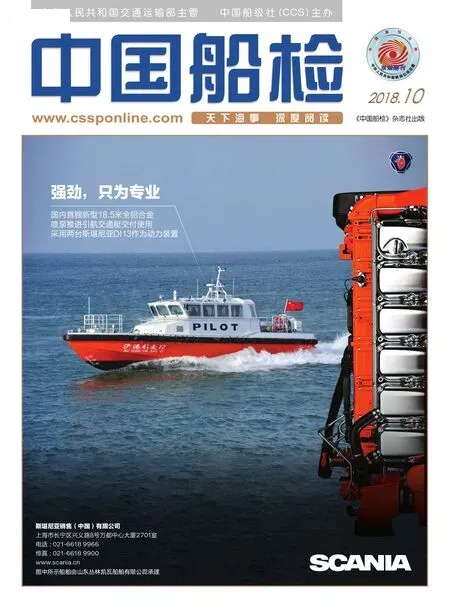Sulphur cap:How does the industry progress at the same pace?
By Yan Hecheng
The 2020 global 0.5% sulphur content limit for marine bunker fuel has caused widespread concerns and discussions in the international shipping industry ever since the decision was taken.IMO has held several conferences to discuss how to provide supplementary measures to make sure the consistent and effective implementation of the new standard, and drew up a Draft Guidance for Consistent Implementation of the 0.50% Sulphur Limit on the PPR Inter-sessional Meeting held in July 2018, which will be further developed and fi nalized during the sixth session of the Sub Committee on Pollution Prevention and Response (PPR6) that is expected to take place in February 2019. So, what should the industry do to cope with it?
Combined the concrete practices of various relevant parties with my personal experience of the on-site regulation work, the author recommends the following solutions:
1. The competent authority can make step-by-step transition plans before the deadline in order to avoid the concentrated adjustments of all parties in the nation at the deadline.
2. All parties should review the implementation recommended in the draft in advance, assess the feasibility of adoption and potential problems, and also conduct the cost-benefit analysis to find a practical solution.
3. The implementation of 2020 new bunker fuel standard covers not only the ship industry (shipowners,shipbuilders etc.) but also the oil product industry(ref i neries, fuel oil suppliers etc.) that is not administered by maritime administration. As a standard enforced by the International Maritime Organization, attention should be paid to the liability and penalty in the case of marine fuel sulphur content exceeding the limit due to oil product industry’s noncompliance with the regulation after the standard comes into force.
4. Regional disparity is a huge challenge for the consistent implementation of the new standard. We should turn spotlight on the exceptional cases allowed in the standard, for example, compliant fuel is not available in some local regions. IMO shall supervise and urge its member states to push forward the supply of compliant fuel, and meanwhile, the administration should also tighten the approval of reports on the lack of accesses to compliant fuel.

5. Explore a credit assessment system for the regulation of fuel sulphur content. Once the system is established,the authority can increase the inspection frequency of the non-compliant ships, reducing the inspectors’ineffective work, and further promoting the adoption of compliant fuel.
6. Focus on the implementation and regulation of the equivalent alternative measures. Currently, the mainstream alternative measures of low-sulphur oil include the application of clean energy, such as onshore power and LNG, and the installation of exhaust gas cleaning system (EGCS) etc. The administration should focus on the potential cases of noncompliance of ships in this fi eld. Besides, IMO is likely to launch independent guidelines on the implementation and regulation of the equivalent alternative measures as well.
7. Focus on the regulation of fuel sulphur content during ships voyage. The amendment to the MARPOL Annex VI requiring a ban on the heavy fuel oil (except for cargo oil) use and carriage by ships from 2020 was approved at the MEPC72, which to some extent avoids the use of heavy oil by ships sailing in high seas. When the regulation is effective, ships will no longer carry heavy oil as a marine fuel. In addition to prohibiting suppliers from providing non-compliant fuel for ships and checking the relevant records, a “fuel oil calculation tool” aimed at monitoring the compliance of the use of fuel oil throughout the entire voyage is deemed as a basis of the detailed inspection and the research and promotion of it are recommended.

